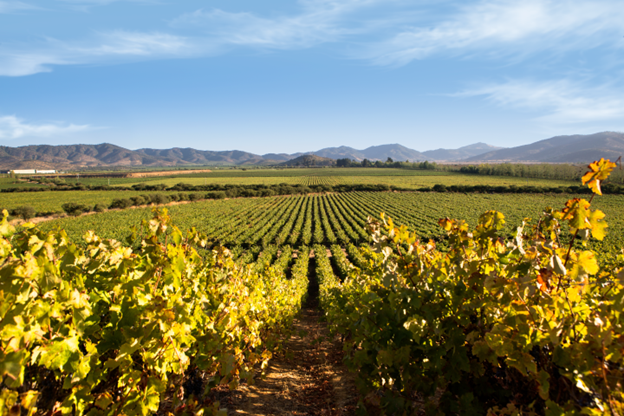Root:1 Pinot Noir

Wine Description
Root:1's Pinot Noir is grown in central Casablanca Valley, less than 15 miles from the Pacific Ocean. Maritime breezes keep temperatures cool during the long growing season, resulting in wines with bright, fresh, and ripe flavors.
 Acclaim
Acclaim
 Vineyard & Production Info
Vineyard & Production Info
Production area/appellation:
Casablanca Valley
Vineyard name
Tapihue Vineyard
Soil composition
Red clay over granite
Training method
VSP Trellis system; bilateral cordon training
Elevation:
900 - 1300 feet
Vines/acre:
1080-1687
Yield/acre:
5 tons
Exposure:
North-South
Year vineyard planted:
2000
Harvest time:
Mid March
First vintage of this wine:
2009
 Winemaking & Aging
Winemaking & Aging
Varietal composition:
100% Pinot Noir
Fermentation container:
Barrels and tanks
Fermentation temperature:
71.6-78.8 °F
Malolactic fermentation:
Yes
Type of aging container:
French Oak and Stainless steel tanks
Size of aging container:
228 L barrels
Length of aging before bottling:
10 months
 Analytical Data
Analytical Data
pH level:
3.63
Acidity:
5.25 g/L
Alcohol:
13 %
Residual sugar:
3.12 g/L
 Wine Production
Wine Production
Root:1 has developed and implemented five pillars of sustainability: Clean Energy, Water Conservation, Waste Management, Minimal Intervention, and Community Connection, which guide its farming and winemaking practices.
- Clean Energy – Root:1 uses solar power for energy, and the large-scale underground gravity cellar generates an even temperature throughout the year without air conditioning or heating.
- Water Conservation – The absolute minimum water necessary is used, and 100% of the process water from the winery is reused for irrigation.
- Minimal Intervention – Root:1 only uses interventions when necessary to protect the vine. Trichoderma, a natural fungus, is used instead of chemicals to control fungi, and products made from tea and citrus extract control botrytis.
- Waste Management – They reuse 85% of their inorganic materials and 100% of their vineyard waste as fertilizer.
- Community Connection – 100% of Root:1’s production team comes from local communities in central Chile, and they support different projects with the community, including the reconstruction of the “Los Pecesitos” school after the 2010 earthquake.







